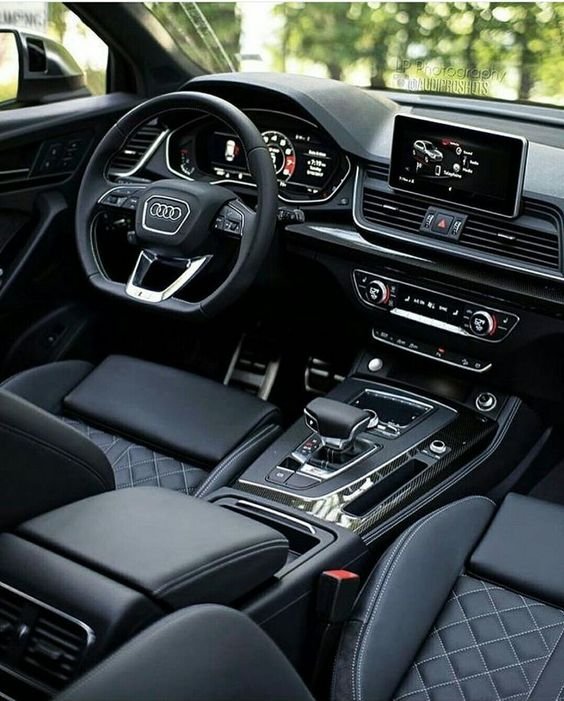
The automotive industry, traditionally known for its mechanical prowess and engineering excellence, is experiencing a digital revolution. One of the most significant technological advancements influencing this transformation is blockchain.
Initially developed as the underlying technology for cryptocurrencies like Bitcoin, blockchain has evolved to offer a plethora of applications across various industries.
In the automotive sector, blockchain promises to enhance security, streamline operations, and introduce new business models.
This detailed article explores the impact of blockchain on the automotive industry, its current applications, future potential, and the challenges it faces.
Understanding Blockchain Technology
Blockchain is a decentralized, distributed ledger technology that records transactions across multiple computers in a way that ensures the security and transparency of data.
Each transaction is added to a block, and these blocks are linked together in a chain, hence the name “blockchain.” The key features of blockchain technology include:
Decentralization: Unlike traditional databases controlled by a single entity, a blockchain is maintained by a network of nodes, making it more resilient to failures and attacks.
Transparency: All transactions are recorded in a public ledger, providing transparency and accountability.
Immutability: Once a block is added to the blockchain, it cannot be altered or deleted, ensuring the integrity of the data.
Security: Cryptographic techniques ensure that transactions are secure and verifiable.
Blockchain Applications in the Automotive Industry
The automotive industry is leveraging blockchain technology in various innovative ways. Here are some key applications:
1. Supply Chain Management
Blockchain can significantly improve the transparency and efficiency of supply chain management in the automotive industry. By recording each step of the manufacturing process on a blockchain, companies can ensure that all components are authentic and meet the required standards. This traceability helps in:
Preventing Counterfeiting: Blockchain can verify the authenticity of car parts, reducing the risk of counterfeit components entering the supply chain.
Improving Recall Management: In the event of a recall, blockchain can quickly identify and track affected parts, enabling more efficient and targeted recalls.
Enhancing Supplier Relationships: Transparent records foster trust among suppliers and manufacturers, improving collaboration and reducing disputes.
2. Vehicle History Tracking
Blockchain can provide a tamper-proof record of a vehicle’s history, including ownership, maintenance, and accident reports. This comprehensive history benefits various stakeholders:
Consumers: Buyers can access reliable information about a vehicle’s past, reducing the risk of purchasing a vehicle with hidden issues.
Dealerships: Dealers can provide verified history reports to build trust with customers.
Insurance Companies: Insurers can assess risk more accurately based on a vehicle’s detailed history.
3. Decentralized Ride-Sharing Platforms
Blockchain enables the creation of decentralized ride-sharing platforms that operate without intermediaries. These platforms can offer several advantages:
Lower Costs: By eliminating intermediaries, blockchain-based ride-sharing services can reduce transaction fees, offering cheaper rides for consumers and better earnings for drivers.
Enhanced Security: Smart contracts ensure secure and automated transactions between riders and drivers.
Improved Trust: Transparent ratings and reviews recorded on the blockchain help build trust among users.
4. Autonomous Vehicles
The development of autonomous vehicles (AVs) relies heavily on secure and reliable data exchange. Blockchain can facilitate this by providing a secure platform for:
Data Sharing: AVs need to share vast amounts of data with other vehicles, infrastructure, and central servers. Blockchain ensures this data is accurate and secure.
Transaction Processing: AVs can use blockchain to handle transactions autonomously, such as paying for tolls, parking, or charging.
Coordination: Blockchain can enable AVs to coordinate actions with each other, improving traffic flow and reducing accidents.
5. Fleet Management
Fleet operators can use blockchain to optimize their operations. Key benefits include:
Maintenance Tracking: Blockchain provides an immutable record of each vehicle’s maintenance history, helping fleet managers schedule timely services and prevent breakdowns.
Cost Management: Transparent records of fuel usage, repairs, and other expenses help in budgeting and cost control.
Compliance: Blockchain ensures that all vehicles comply with regulatory requirements, reducing the risk of fines and penalties.
Future Potential of Blockchain in Automotive
The potential applications of blockchain in the automotive industry extend beyond the current use cases. Here are some emerging trends and future possibilities:
1. Vehicle Identity and Registration
Blockchain can streamline the vehicle registration process by creating a unique digital identity for each vehicle. This digital identity can store all relevant information, including registration details, ownership history, and compliance records. Benefits include:
Simplified Transfers: Ownership transfers can be executed quickly and securely using smart contracts.
Fraud Prevention: Immutable records reduce the risk of fraudulent activities, such as title washing and odometer tampering.
Global Standards: A universal blockchain-based registry can harmonize vehicle registration standards across different regions.
2. Usage-Based Insurance
Insurance companies are exploring blockchain to offer usage-based insurance (UBI) policies. UBI policies calculate premiums based on actual driving behavior rather than traditional risk factors. Blockchain enables:
Accurate Data Collection: Real-time driving data recorded on the blockchain ensures accuracy and prevents tampering.
Dynamic Pricing: Smart contracts can adjust premiums based on driving behavior, rewarding safe drivers with lower rates.
Claim Automation: Blockchain can automate claim processing, reducing paperwork and speeding up settlements.
3. Electric Vehicle Charging Networks
As the adoption of electric vehicles (EVs) grows, there is a need for efficient and accessible charging infrastructure. Blockchain can facilitate:
Payment Processing: Blockchain can handle payments for charging services seamlessly, supporting various currencies and tokens.
Network Management: Decentralized networks can optimize charging station usage, reducing wait times and improving efficiency.
Peer-to-Peer (P2P) Charging: EV owners can share their private charging stations with others, creating a P2P charging ecosystem.
4. Data Monetization
Modern vehicles generate vast amounts of data, from driving patterns to environmental conditions. Blockchain enables secure and transparent data monetization:
Data Ownership: Blockchain ensures that vehicle owners retain control over their data and can decide who to share it with.
Revenue Streams: Owners can monetize their data by selling it to third parties, such as researchers and developers.
Privacy Protection: Blockchain’s security features protect sensitive data from unauthorized access and misuse.
5. Mobility-as-a-Service (MaaS)
The concept of Mobility-as-a-Service (MaaS) envisions a seamless integration of various transportation modes into a single service. Blockchain can support MaaS by:
Unified Payment Systems: Blockchain can integrate payments for different transportation modes, such as buses, trains, and ride-sharing, into a single platform.
Subscription Models: Users can subscribe to MaaS services, with blockchain handling billing and service usage tracking.
Interoperability: Blockchain ensures that different transportation providers can operate together seamlessly, offering a cohesive user experience.
Challenges and Considerations
While blockchain holds immense promise for the automotive industry, several challenges and considerations need to be addressed:
1. Scalability
Blockchain networks need to handle a high volume of transactions efficiently. Current blockchain technologies face scalability issues, limiting their ability to support large-scale automotive applications. Ongoing research and development are focused on improving blockchain scalability through solutions such as sharding and layer-two protocols.
2. Interoperability
The automotive industry involves numerous stakeholders, including manufacturers, suppliers, service providers, and regulators. Ensuring interoperability between different blockchain platforms and legacy systems is crucial for widespread adoption. Industry-wide standards and protocols are needed to facilitate seamless data exchange and collaboration.
3. Regulatory Compliance
Blockchain applications in the automotive industry must comply with various regulatory requirements, such as data privacy laws and safety standards. Navigating the complex regulatory landscape requires collaboration between industry players and regulators to develop compliant blockchain solutions.
4. Cost and Complexity
Implementing blockchain solutions can be costly and complex, requiring significant investments in technology and expertise. Small and medium-sized enterprises (SMEs) in the automotive sector may face challenges in adopting blockchain due to resource constraints. Cost-effective and user-friendly blockchain solutions are needed to make the technology accessible to all industry players.
5. Security Risks
While blockchain offers robust security features, it is not immune to risks. Vulnerabilities in smart contracts, 51% attacks, and other threats can compromise the integrity of blockchain systems. Continuous security audits, rigorous testing, and best practices are essential to mitigate these risks.
Blockchain technology is poised to revolutionize the automotive industry by enhancing transparency, security, and efficiency across various applications. From supply chain management and vehicle history tracking to autonomous vehicles and decentralized ride-sharing platforms, blockchain offers innovative solutions to longstanding challenges. The future potential of blockchain in the automotive sector is vast, with emerging trends such as vehicle identity, usage-based insurance, and electric vehicle charging networks promising to further transform the industry.
However, realizing the full potential of blockchain requires addressing challenges related to scalability, interoperability, regulatory compliance, cost, and security. Collaborative efforts among industry stakeholders, technology providers, and regulators are crucial to overcoming these challenges and driving the successful adoption of blockchain in the automotive sector.
As the automotive industry continues to evolve, embracing blockchain technology will be key to staying competitive and meeting the demands of a rapidly changing market. By leveraging the unique capabilities of blockchain, the industry can unlock new opportunities for innovation, growth, and sustainability, ultimately delivering enhanced value to consumers and stakeholders alike.
ALSO READ: Electric Cars for Long-Distance Travel: tips and advice







